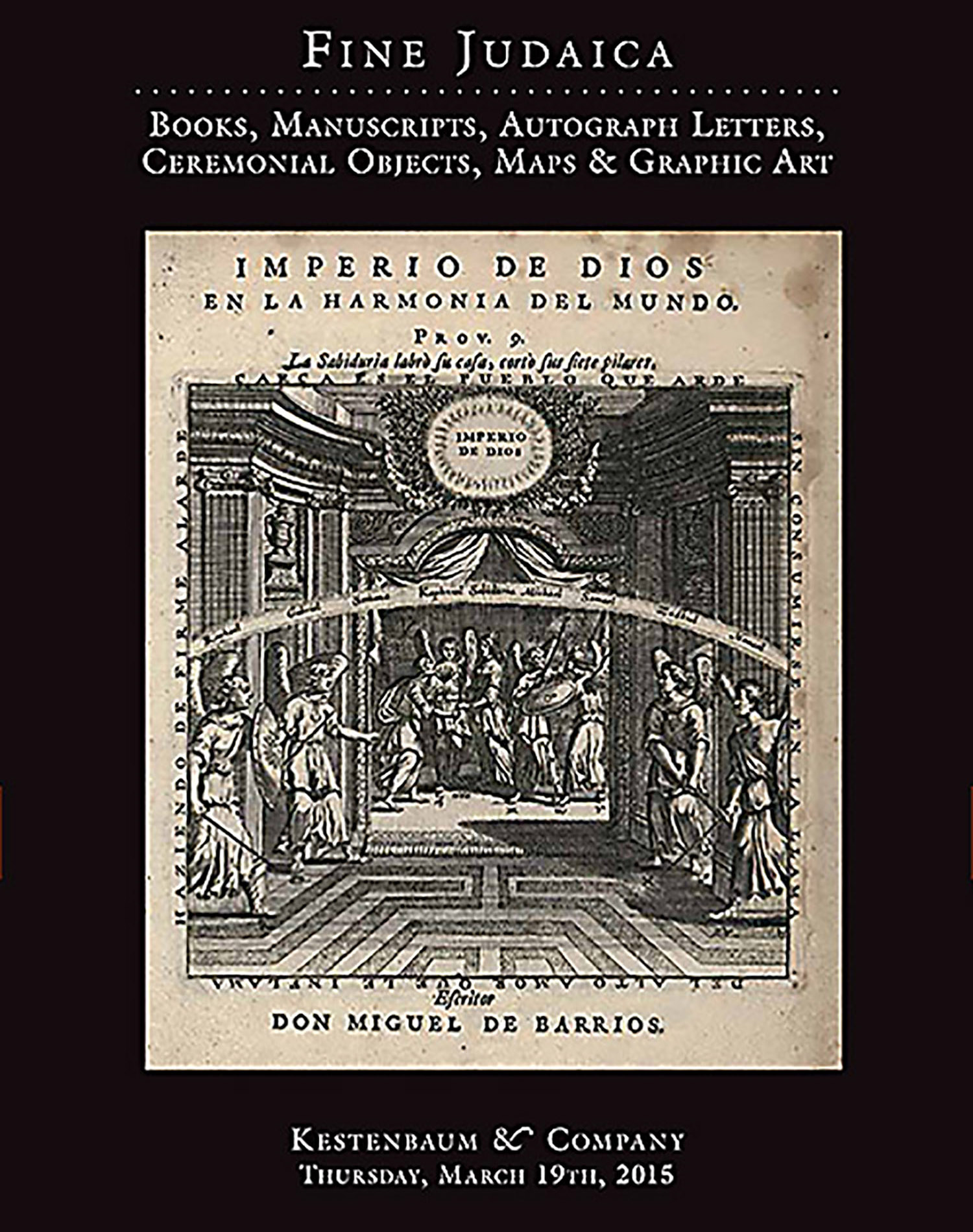Eulogy in Commemoration of the Deceased Poetess, Minna Kleeberg, Pronounced in the Temple of the Congregation “Mishkan Israel” in New Haven… As a Tribute of his Love and Affection, by her Husband, Rev. Dr. L. Kleeberg, Rabbi of the Congregation.

AUCTION 64 |
Thursday, March 19th,
2015 at 1:00
Fine Judaica: Books, Manuscripts, Autograph Letters, Ceremonial Objects, Maps and Graphic Art
Lot 38
(AMERICAN JUDAICA).
Eulogy in Commemoration of the Deceased Poetess, Minna Kleeberg, Pronounced in the Temple of the Congregation “Mishkan Israel” in New Haven… As a Tribute of his Love and Affection, by her Husband, Rev. Dr. L. Kleeberg, Rabbi of the Congregation.
New Haven, CT: Tuttle, Morehouse & Taylor 1879
Est: $3,000 - $5,000
When Minna Kleeberg (b. 1841) arrived in the United States from her native Germany in 1866, she was already well known due to the wide acclaim of her poem, “Ein Lied vom Salz,” a plea for the removal of the Prussian tax on salt. Her poetry expressed her passion for social justice and a devotion to her Jewish faith.
Daughter of a physician, she received as fine an education as a girl could obtain in mid-19th century Germany. After her marriage to Rabbi Leopold (Levi) Kleeberg, her poetry turned to liturgical creations, while continuing to serve as a vehicle for social expression. She had an abiding interest in public and patriotic matters, among her themes were: The Franco-Prussian War, the Fifteenth Amendment, the emancipation of women, and the cause of liberty and democracy. Jewish national and religious feelings were equally a source of inspiration. The aspersions cast upon Jews by Wagner and Billroth she repelled with indignant vigor. Her children and the joys and sorrows of family life were also notable themes of her verse.
Minna Kleeberg was best known to the American Jewish community for her hymns which appeared in the most widely used Jewish hymnal in 19th-century America, Isaac M. Wise’s Hymns, Psalms and Prayers, In English and German (Cincinnati, 1868). Ten German hymns by Kleeberg form the largest number by any poet. They celebrate the Torah, man, faith, and the holidays.
Less than two years after settling in New Haven, to which her husband had been called from Louisville, Kentucky, Minna Kleeberg died, on the last day of 1878. In his eulogy for his departed wife, Rabbi Kleeberg recalled:
“Almost from her childhood she complained of the subordinate position which tradition and custom assigned to woman. Upon her thirteenth birthday and the following Sabbath she shed bitter tears that she was not, like Jewish boys of her own age, entitled to take part in the public reading of the law, and by this rite be solemnly consecrated to the cause of Israel…”
See A.J. Karp, From the Ends of the Earth, Judaic Treasures of the Library of Congress (1991) pp. 177-78.
